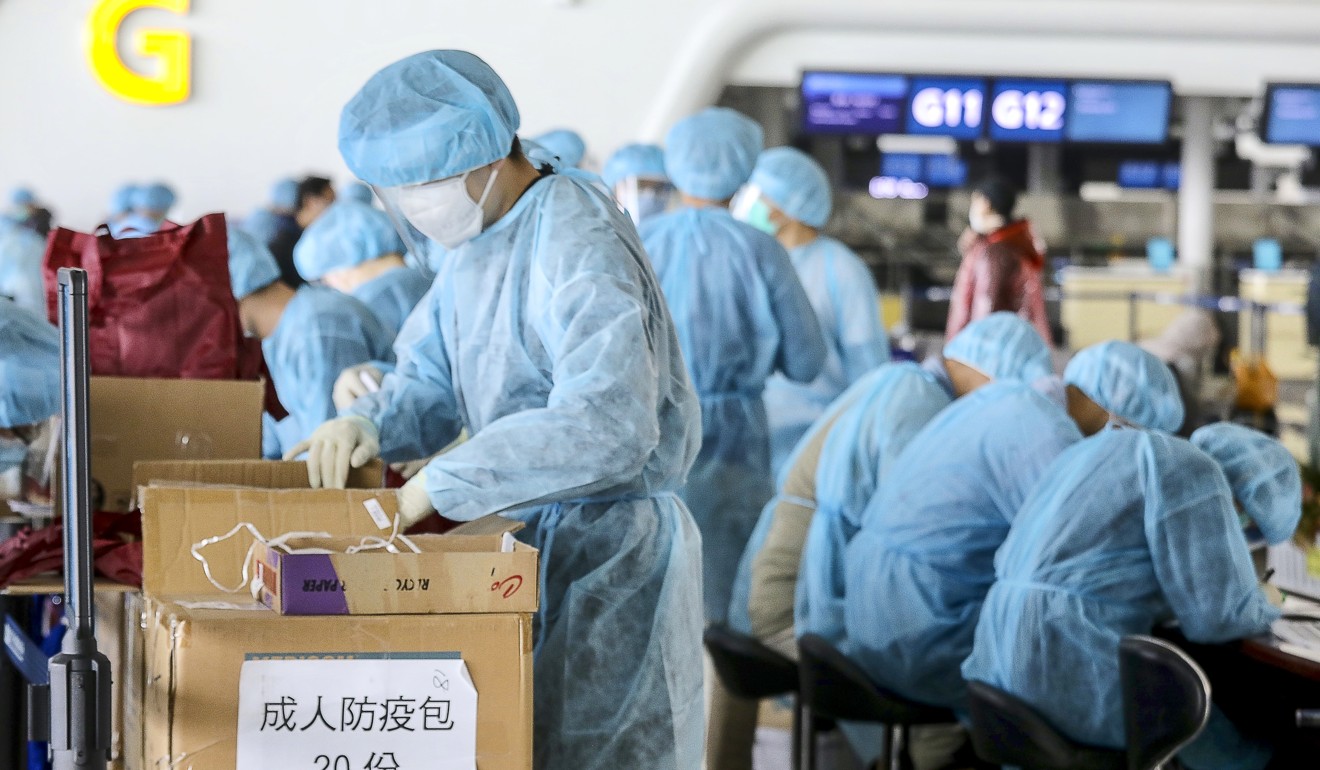
225 Hongkongers evacuated from coronavirus epicentre in mainland China on second day of chartered flights, but more than 3,000 remain and are low on food
- A total of 469 city residents have returned, but many more are still in Hubei province, with no clear details on further plans to move them
- One of the stranded says his wife, a Shenzhen resident, is not allowed on any future flights, even though she has a Hong Kong travel visa
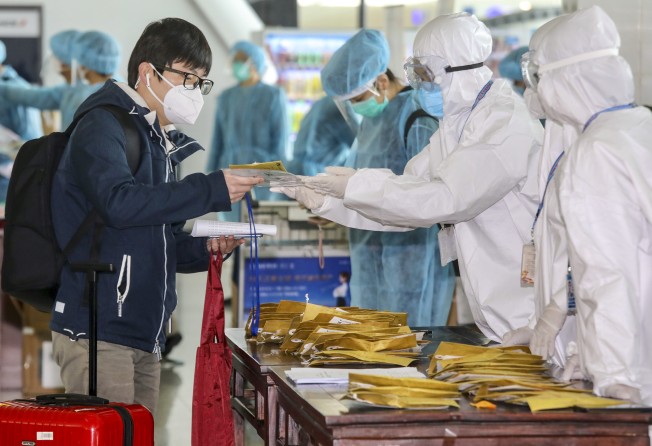
Hongkongers still stuck in the epicentre of the coronavirus outbreak in mainland China are running low on food and have complained that a non-resident member of a family was excluded from evacuation.
The news of their situation emerged as a third government-chartered flight out of Hubei province returned on Thursday afternoon, with a fourth touching down at 9.10pm. A total of 225 residents were flown home on both flights.

At 4.30pm, evacuees from Wuhan, in full protective suits, disembarked from their Cathay Dragon plane and boarded coaches stationed on the tarmac. They were transported to Chun Yeung Estate in Fo Tan for a two-week quarantine.
Pang Kong-cheung, 68, who was on the flight with his 64-year-old wife, said: “Nothing’s better than returning home.”
He said clearance was smooth at both airports and their temperatures were checked three times throughout the journey.
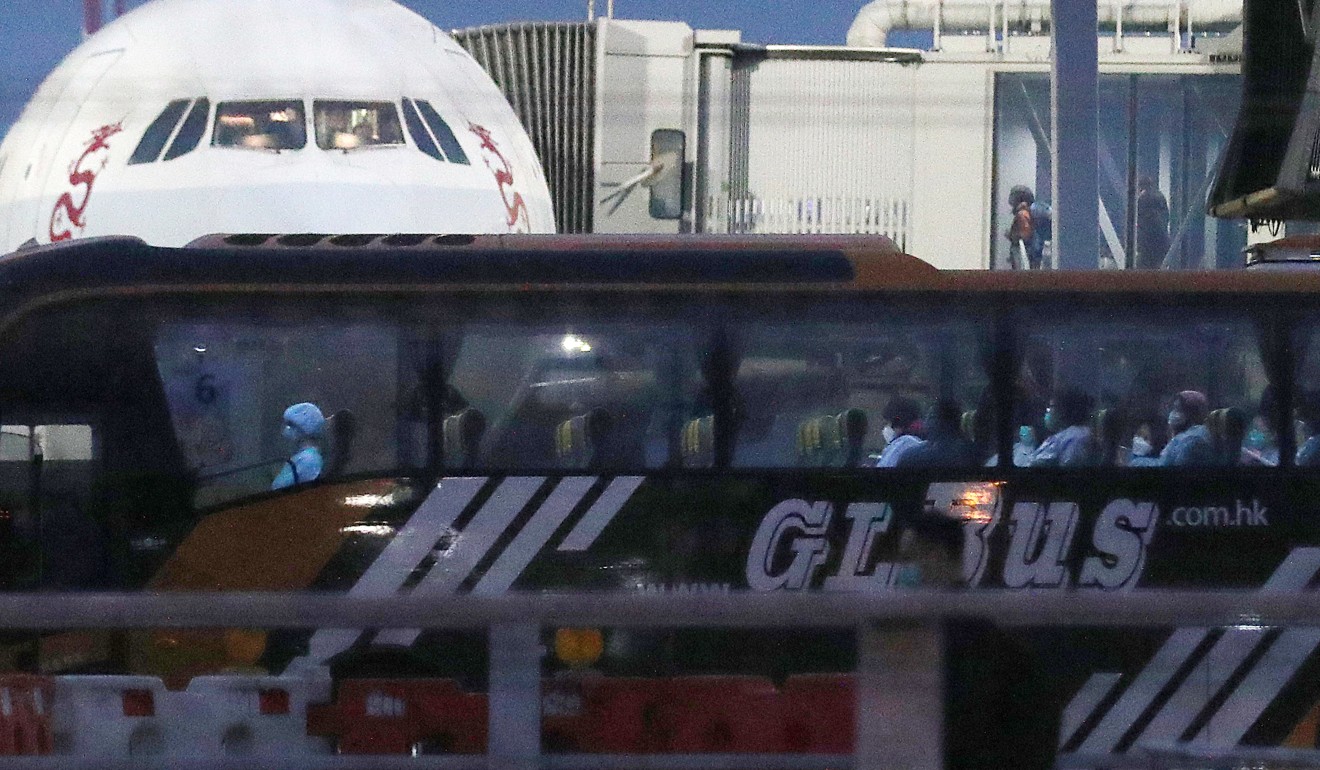
The couple, who were stranded in Wuhan since the lockdown in late January, were among about 469 residents with urgent needs brought back in batches on four chartered flights from Wednesday to Thursday.
But there are still more than 3,000 Hongkongers scattered across the province.
Since late February, officials in some locked-down provinces have rolled out online health declaration systems which allow people without Covid-19 symptoms to move around in their cities under limited conditions.
The system is not accessible to Hong Kong and Macau residents in such areas.
Concluding the operation in Hong Kong on Thursday evening, Secretary for Constitutional and Mainland Affairs Patrick Nip Tak-kuen said 64 residents did not come back on the chartered flights. Six of them did not pass temperature checks, and two others accompanying them chose to stay on, while the rest withdrew.
Nip said more than 3,900 people across Hubei province had sought help from the Hong Kong government.
“We will handle [the cases] by batches according to their urgency and feasibility,” he said, adding it would be unlikely they could be brought back by chartered flights in the coming week.
On whether other mainland airports or the high-speed rail link should be used, he said officials would need to discuss this with their counterparts across the border.
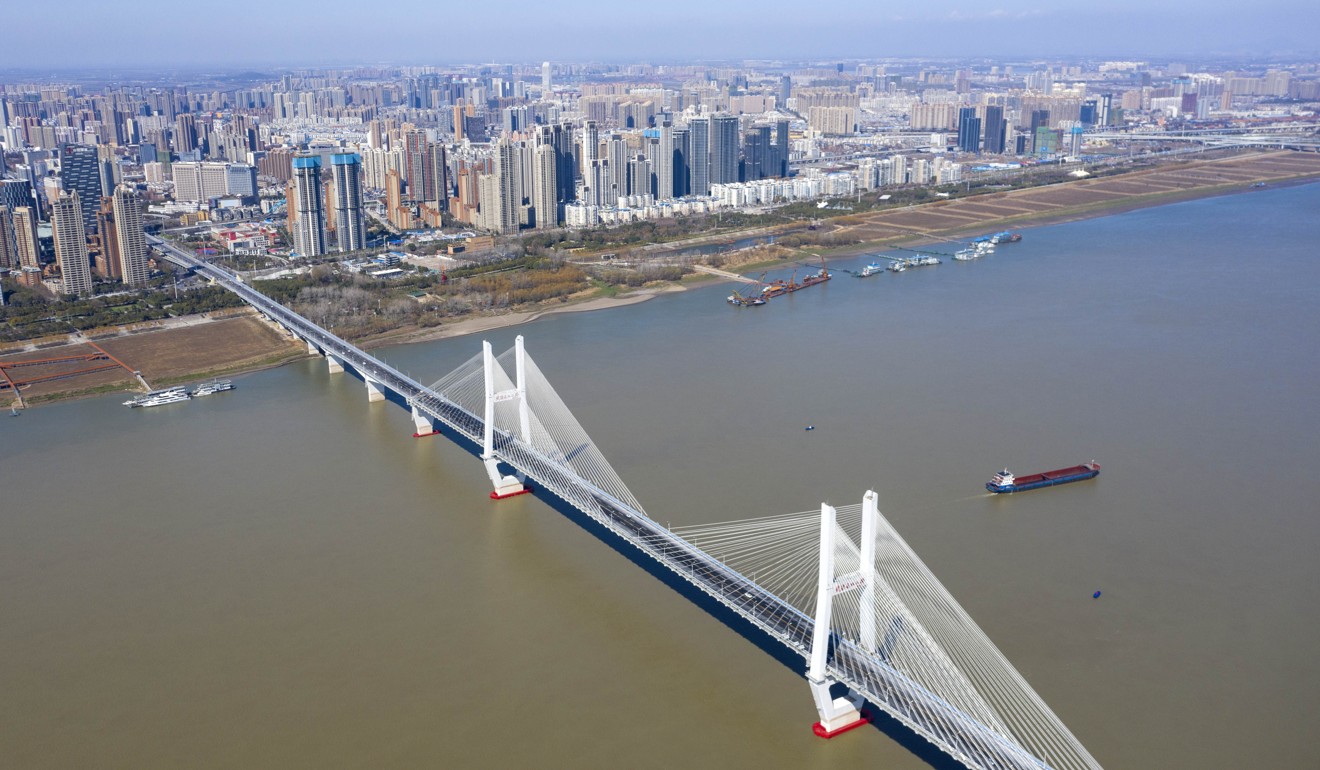
“But according to our experience on these two days, sending Hong Kong residents from Wuhan airport by batches is the fastest, safest and most reliable way. If we have to use other means, then we will have to assess the risks,” he said.
He said 13 Hongkongers in the province were confirmed to have contracted the virus, up from 12 reported earlier. The new case involved a nine-year-old girl who had already recovered.
Brushing off concerns about why he did not require quarantine, Nip said government workers were exempted and he had carried out preventive measures according to advice from health experts, while also staying mainly in the airport area.
“Our cases were assessed by public health experts and colleagues from the Department of Health. They clearly know that we don’t need such arrangements,” he said.
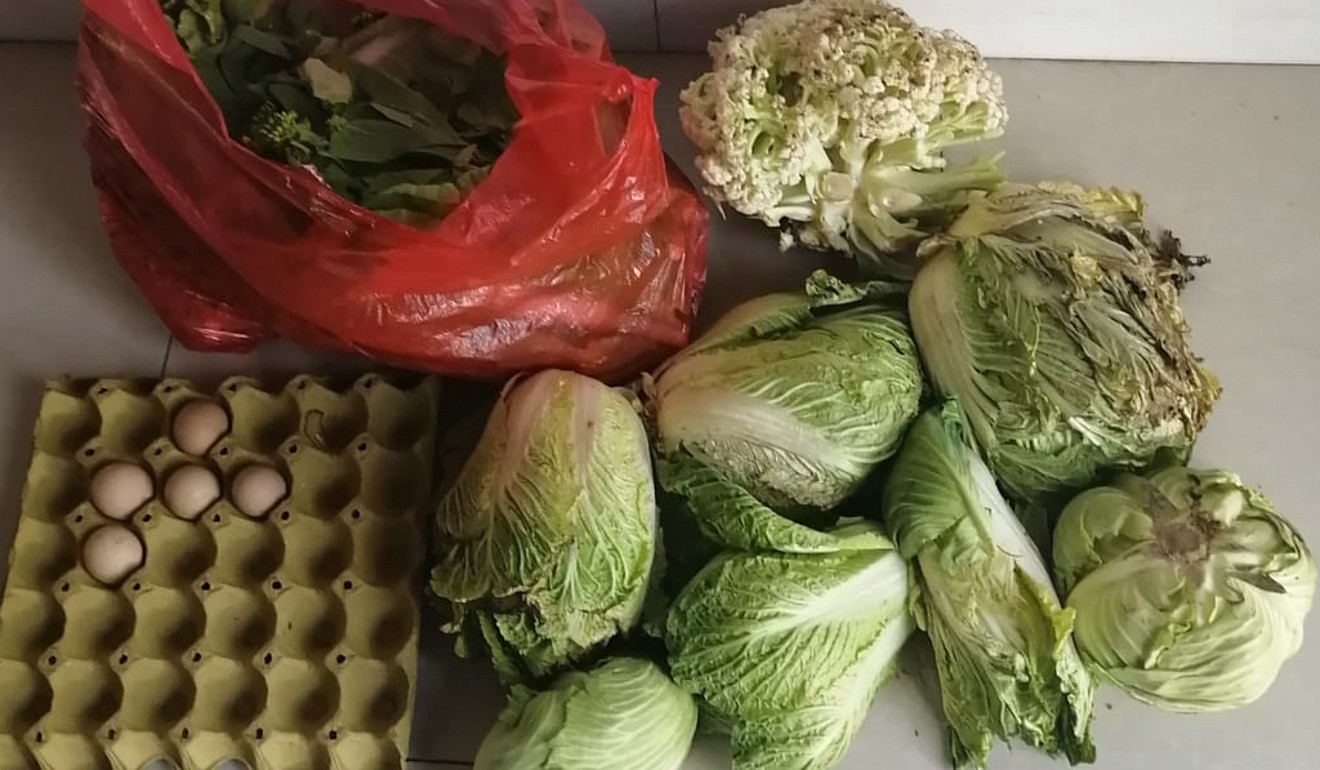
Meanwhile, in Tianmen – a city two hours’ drive from Wuhan – Joe Chan, a Hong Kong businessman stuck there said supplies were running low as local supermarkets and grocery stores had closed.
“We are largely relying on the food we bought one month ago, and will probably be able to last another week or so,” said Chan, who had been in the city with his wife and child since January, when they headed north of the border to visit his in-laws.
“We now only have vegetables and rice twice a day – breakfast and dinner,” he said. “There’s nothing we can do. Other villagers face the same problem, and some vegetables [from farms] were also stolen. Basically, everyone is having a tough time.”
He was disappointed that the Hong Kong government had not given clear details about when it would bring him, and the other 2,000 residents in Hubei, home.
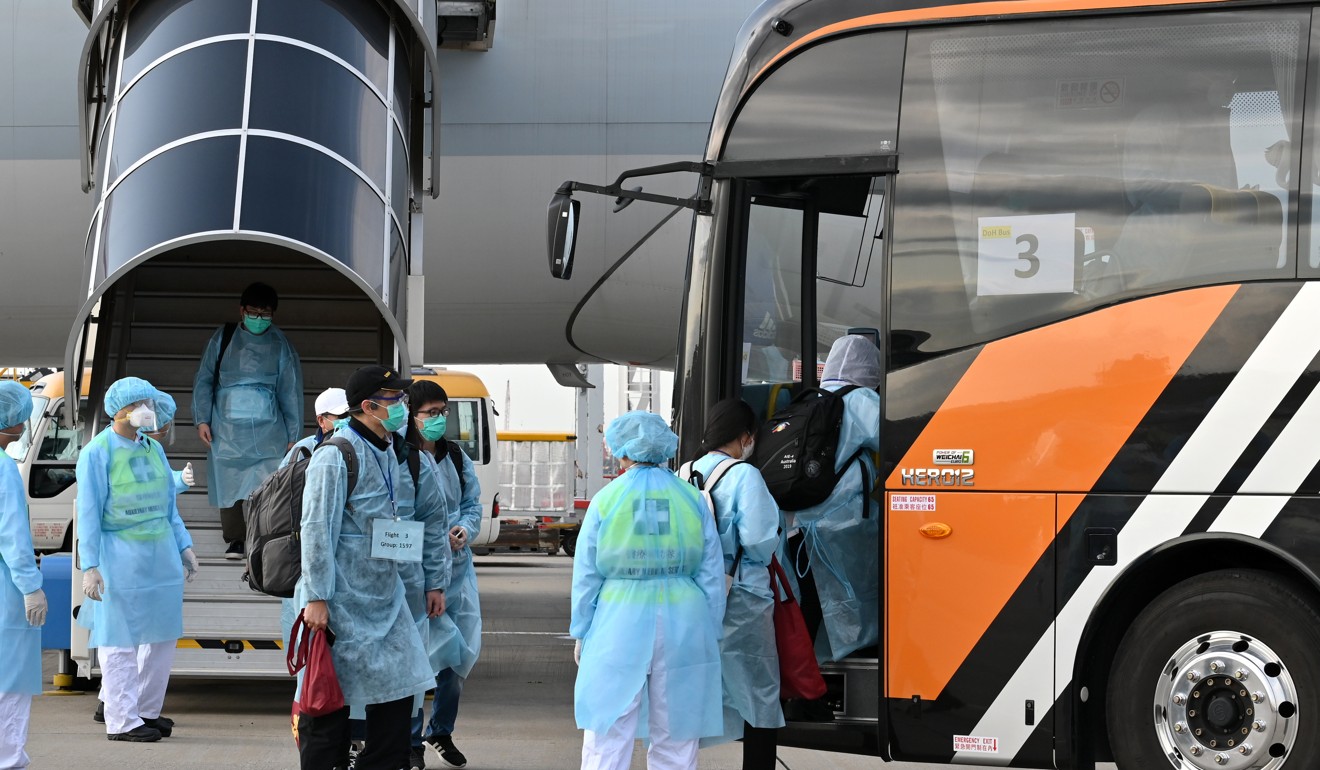
“It’s fine if we are not among the first batch back home, but the government should at least let us know whether it will take us back home, or when. We are only waiting endlessly every day,” Chan said.
Simon Chen, also a Hong Kong resident, said he was frustrated by the rejection of his request to let his wife, the only non-Hongkonger in his family of six, return home with them if there was another chartered flight.
Chen took his wife, who is a Shenzhen resident, and their four children aged four to 13, with him on a business trip to Wuhan on January 20 and were later stranded in Hubei’s second-largest city, Xiangyang.
“We are a family. How can I leave her here simply because she doesn’t have a Hong Kong identity card?” Chen said, adding that his wife had a valid travel visa to Hong Kong.
“I told the immigration officer who spoke to me over the phone that I can pay for the flight but they repeated that she’s not allowed to board any future flights.”
Chen also said the Hong Kong Immigration Department rejected his request to provide written support to local authorities to let his wife leave for Shenzhen in a relative’s car.
Meanwhile, Michael Luk Chung-hung, a lawmaker from the pro-establishment Hong Kong Federation of Trade Unions, said the city’s government could also consider using two airports in Enshi and Yichang, to the south of the province, in addition to the one in Wuhan, to bring the people back as soon as possible.
Pro-establishment lawmaker Priscilla Leung Mei-fun, also a constitutional law adviser to Beijing, urged the Hong Kong government to directly contact local officials on the mainland to help arrange the next phase of rescues.
“In some cases, citizens stranded in Hubei can’t even leave the village. Local governments should provide some transport to a pickup spot,” she told a morning radio programme on Thursday. “The government should step up and intervene … people stranded there would feel more at ease.”
Evacuees from the first two chartered flights sent to the quarantine facility included six pregnant women, according to Elizabeth Quat, legislator of another pro-establishment party the Democratic Alliance for the Betterment and Progress of Hong Kong.
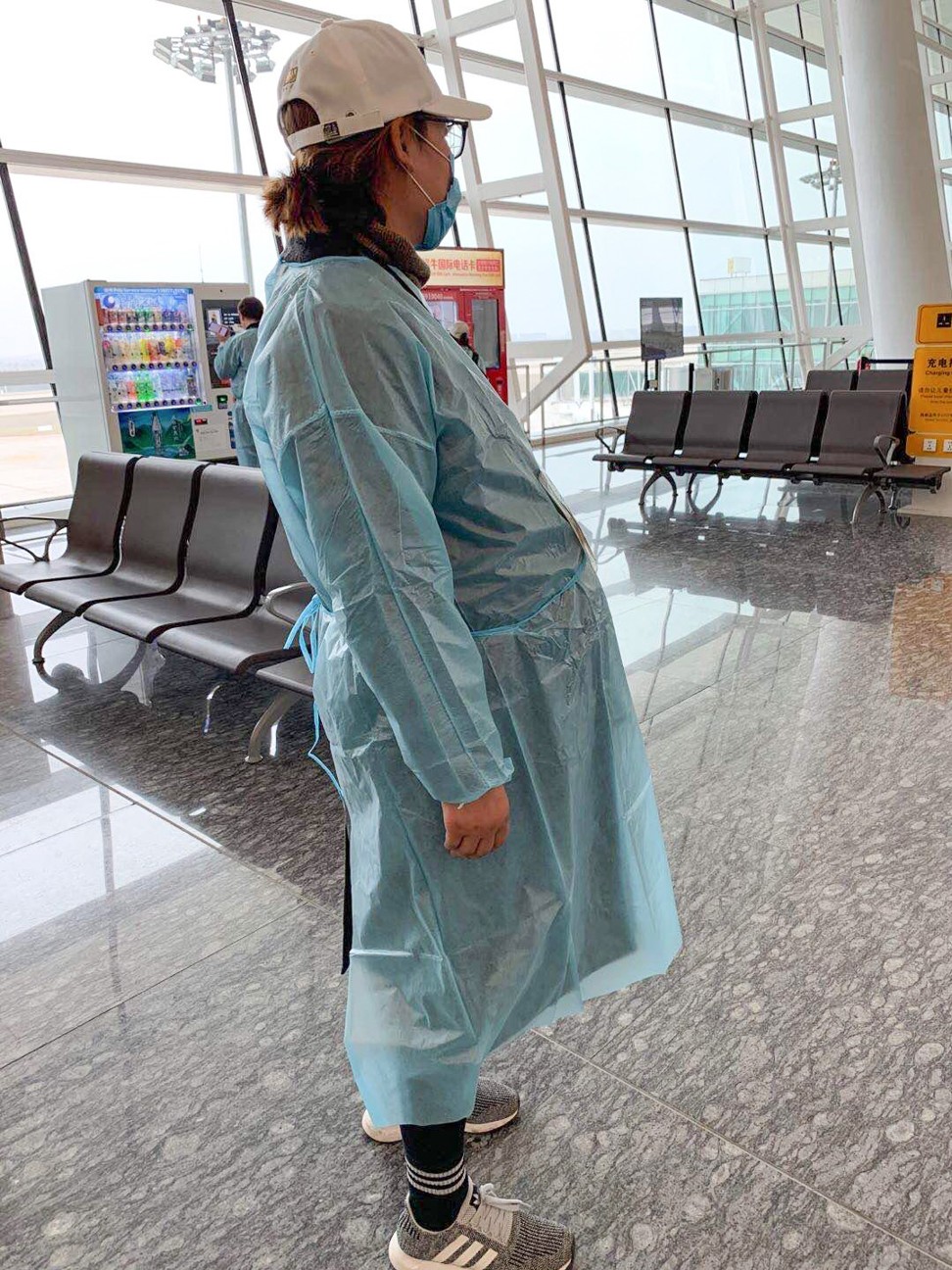
She said she hoped the government could provide calcium-rich foods and mattresses for them during their two weeks of isolation.